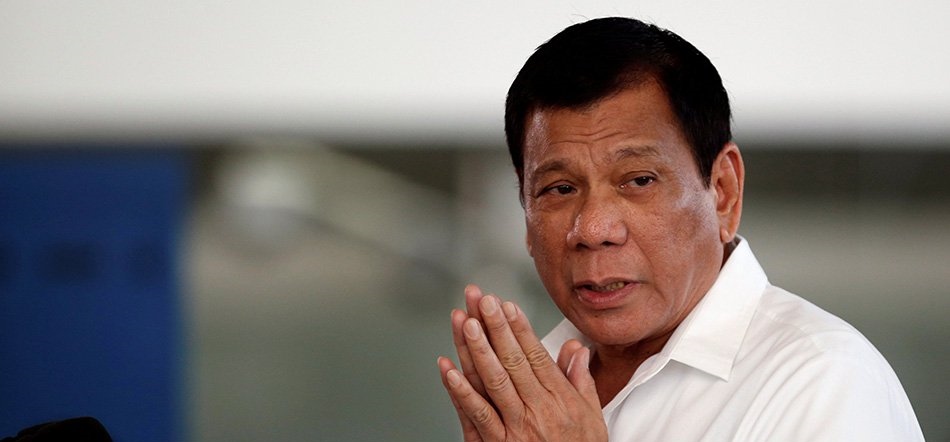CA: By way of deception
April 5, 2018 | Expert Insights

Strategic Communications Laboratories or SCL Group, which is also the parent company for the controversial Cambridge Analytica had worked to help elect Philippines’ leader Rodrigo Duterte. Cambridge Analytica has been accused of conducting a large-scale data breach on Facebook’s user information.
Background
In 2016, Duterte, a controversial figure across the world, won the general election and assumed the office of the President. One of the key campaign promises that he had made was to be tough on criminals. He often vowed to kill thousands of criminals and has urged the public to take the law into their own hands and kill drug addicts themselves. He once noted, “If you know of any addicts, go ahead and kill them yourself as getting their parents to do it would be too painful.”
The number of deaths in this deadly campaign has increased in the recent months. According to documented reports, there have been 7,000 deaths since April 2017. The UN has called on the country and the government to put an end to the violence. However, Duterte has retaliated by announcing that if the criticism persisted then he would withdraw Philippines from the UN and form a new body along with China and other countries.
The advocacy group, the Human Rights Watch has labelled Duterte’s reign as President as a “human rights calamity.”
Cambridge Analytica
Cambridge Analytica is a private political consulting company founded in 2013. It uses data mining and data analysis “to change audience behaviour”. The company uses personal data acquired from a number of sources, including Facebook, to create micro-targeting advertisements designed to influence opinions. In an exposé by UK’s Channel News 4, CEO Alexander Nix was caught on tape claiming that the company does “a lot more” than just investigation, alluding to entrapment and bribery. The company has been involved in a number of political campaigns across the world.
In March 2018, scandal erupted when the company was accused of a Facebook data breach. Cambridge University professor Aleksandr Kogan reportedly sold the company personal user information of 50 million Facebook users, which may have been used in political influence campaigns. One of the executives of the company told undercover reporters that the organization had been responsible for popularizing the “Crooked Hillary” phrase.
Analysis
It has since been revealed that Cambridge Analytica had worked in more than 200 elections around the world, including in Nigeria, Kenya, the Czech Republic, India, and Argentina. The South China Morning Post has reported that Cambridge Analytica’s parent company had worked to help elect Philippines’ leader Rodrigo Duterte. Strategic Communications Laboratories or SCL Group is the parent company for CA.
“In the run up to national elections the incumbent client was widely perceived as both kind and honourable, qualities his campaign team thought were potentially election-winning,” the SCL web content said. “But SCL’s research showed that many groups within the electorate were more likely to be swayed by qualities such as toughness and decisiveness. SCL used the cross-cutting issue of crime to rebrand the client as a strong, no-nonsense man of action, who would appeal to the true values of the voters.”
Duterte projected himself as a “tough” personality who is willing to address the drug problems in Philippines. Meanwhile, Facebook's Chief Technology Officer Mike Schroepfer revealed more than 1.1 million Facebook users in the Philippines had their data harvested by an app developed in conjunction with Cambridge Analytica. It should also be noted that in 2015 (a year before the Philippines’ election), Cambridge Analytica CEO Alexander Nix visited the nation. At the time he only stated that he was in the region for the purposes of “research.”
During his visit, Nix also spoke about the evolving nature of election campaigns. He said, “Election campaigning will never be the same again due to the advent of cutting-edge technology. The traditional and conventional methods that have been employed through all the elections in the last century may still work, but they will be unlike new strategies and tactics that are products of behavioural micro-targeting, psychographic profiling, predictive analytics and many other modern tools.”
Data mining is the process of discovering patterns in large data sets involving methods at the intersection of machine learning, statistics, and database systems. This is the practice employed by advertisers, political campaigns and other industries.
Assessment
Our assessment is that it is increasingly essential for governments to ensure the protection of digital democracy. As we have stated earlier, governments have to work to implement data protection legislation. The increase in the number of data breaches have resulted in an environment where societies may not trust each other. We believe the core values of democracy are under threat when we are not able to protect data that has been privately shared.
Read more: Cambridge Analytica








Comments